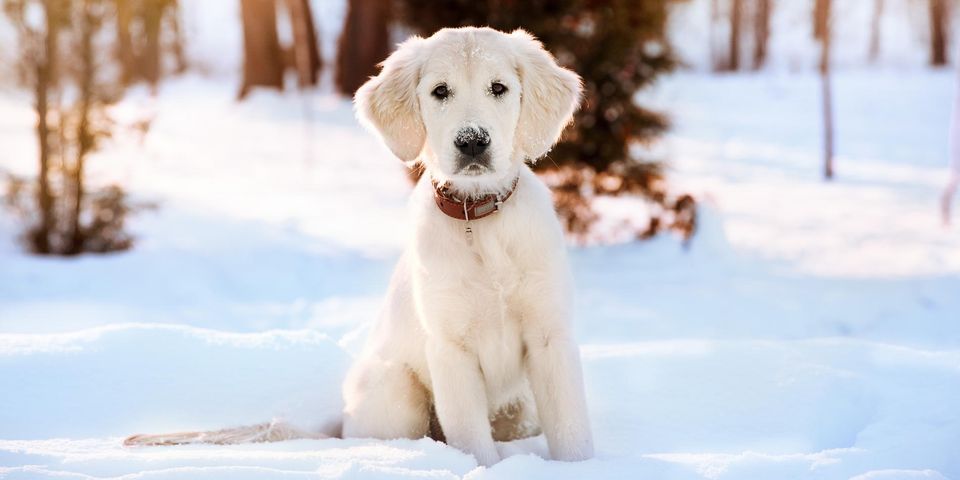
Fresh air and exercise are both important parts of pet care, even during the winter. While your dog is outside, however, keep in mind that bare paws are vulnerable to the elements. The following guide explains what every dog owner should know about keeping their pet’s paws safe in the cold.
Keeping Your Dog’s Paws Safe in Winter
Why Is It Important to Protect Paws?
Without proper protection, paw pads can experience damage throughout the winter. Prolonged contact with ice and snow can lead to painful frostbite, while the lack of humidity in winter air can crack pads and cause bleeding. Walking on sidewalks and roads may also put your dog at risk for burns from de-icing agents. Severe winter injuries could result in infections, which would require pet care from the emergency vet.
How Can You Protect Their Paws?
 There are a few ways you can avoid winter paw injuries. Throughout the season, keep your dog’s nails and the fur between their toes trimmed to prevent ice and snow from accumulating there. Before walks, rub paw balm on the pads of their feet to protect them from dryness, frigid temperatures, and toxic chemicals. After returning home, wash and dry their paws to fully remove any chemicals they may have picked up, then reapply the balm. When temperatures are below freezing, keep walks short, and don’t let your dog outside unsupervised for extended periods of time. Consider getting some properly fitted booties for your pup as well. While they may take some getting used to, they offer warmth and coverage during any outdoor adventures.
There are a few ways you can avoid winter paw injuries. Throughout the season, keep your dog’s nails and the fur between their toes trimmed to prevent ice and snow from accumulating there. Before walks, rub paw balm on the pads of their feet to protect them from dryness, frigid temperatures, and toxic chemicals. After returning home, wash and dry their paws to fully remove any chemicals they may have picked up, then reapply the balm. When temperatures are below freezing, keep walks short, and don’t let your dog outside unsupervised for extended periods of time. Consider getting some properly fitted booties for your pup as well. While they may take some getting used to, they offer warmth and coverage during any outdoor adventures.
What Are Some Signs They’re Uncomfortable?
During and after walks, pay attention to your dog’s body language and behavior. Limping and shivering are common signals that it’s time to go inside. Pet care experts suggest checking for swelling, irritation, discoloration, blisters, and sensitivity in their paws, which can all be signs of frostbite or chemical burns. If your pet is experiencing irritation around the mouth, dizziness, irregular breathing, or appetite loss, they may have ingested de-icing chemicals. Take your pet to the veterinarian immediately if you notice these symptoms. With vigilance and preparation, you can ensure the safety of their paws this winter.
If the elements of winter are taking a toll on your dog’s health, bring them to Animal Care Center PLLC of Princeton, WV. Their experienced veterinarians offer compassionate pet care, 24/7 emergency services, and the latest in veterinary technology to cats and dogs across the Mercer County area. Whether you want preventative treatments for your pet or advice on winter safety, this veterinary clinic has all the resources necessary to keep your furry friend healthy. Call (304) 425-7387 to set up an appointment. To learn more about their vast list of services, visit their website.
About the Business
Have a question? Ask the experts!
Send your question

